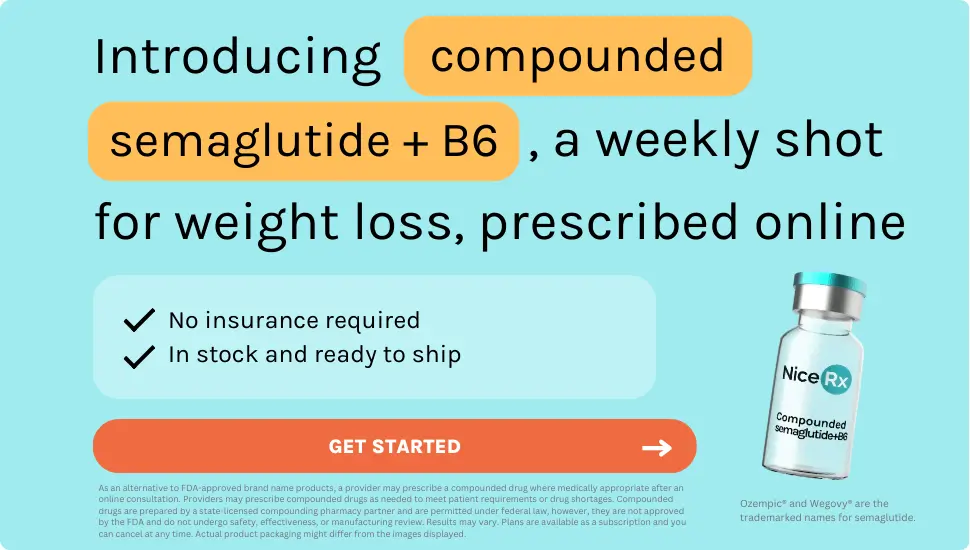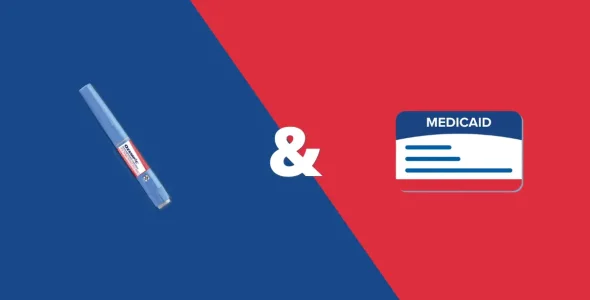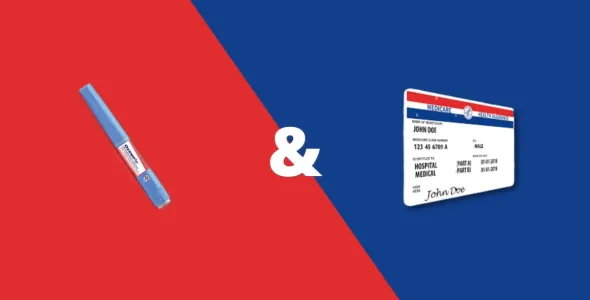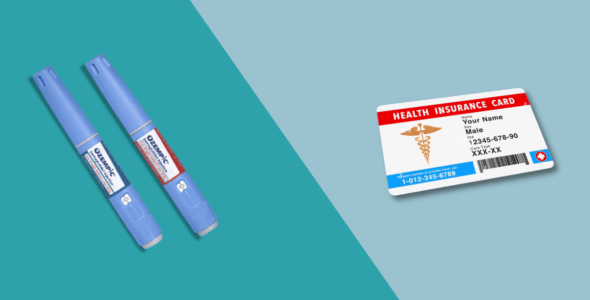Does Aetna cover Ozempic?
Key highlights
- Aetna's coverage of Ozempic varies based on your specific health insurance plan’s prescription drug plan, formulary and the reason you were prescribed Ozempic.
- Coverage is more likely for FDA-approved uses like treating type 2 diabetes.
- Prior authorization is often required for Ozempic coverage.
- Trying other diabetes medications like metformin first may be required before starting Ozempic treatment.
- Off-label uses, such as weight loss, may have more restricted coverage.
Ozempic is a brand-name prescription drug manufactured by Novo Nordisk for the treatment of type 2 diabetes. Without insurance coverage, Ozempic costs around $1,000 per month.
Ozempic insurance coverage typically depends on the medical reason you are taking the medication (e.g. type 2 diabetes or weight loss) and the prescription drug coverage provided by your insurance plan.
If you have insurance coverage through Aetna and have been prescribed Ozempic, keep reading this article to find out if your plan covers Ozempic.
Does Aetna cover Ozempic?
Coverage for Ozempic depends on the specific coverage details of your Aetna plan and if you’re taking Ozempic for its FDA-approved indication. Currently, Ozempic is FDA-approved for improving blood sugar levels in people with type 2 diabetes and for reducing cardiovascular events (such as heart attack, stroke, or death) in people with type 2 diabetes and heart disease. Aetna coverage for Ozempic is more likely if prescribed for either of these FDA-approved indications.
As an example, Aetna’s Advanced Control Plan and the Aetna Standard Plan cover Ozempic. When Ozempic is covered by Aetna, it is typically listed under their Preferred Brand drug tier. Prior authorization and step therapy are usually required.
Does Aetna cover Ozempic for weight loss?
Aetna’s coverage of Ozempic for weight loss is typically more restricted and it is less likely to be covered for weight loss for people without diabetes. While Ozempic is effective in promoting weight loss, it is not FDA-approved for chronic weight management. When a patient is prescribed Ozempic for weight loss, it is considered an “off-label” prescription which means that the prescription was written at the provider’s discretion using their medical expertise when determining that the medication was medically appropriate for the patient’s health condition, even when it was not FDA-approved for this condition.
Your healthcare provider can submit a coverage request to Aetna on your behalf requesting they cover Ozempic as a treatment for weight loss. However, insurance plans typically do not cover drugs for their off-label uses so the coverage request will likely be denied.
The maker of Ozempic, Novo Nordisk, manufactures a GLP-1 drug called Wegovy that has the same active ingredient as Ozempic, semaglutide. Wegovy is FDA-approved for chronic weight loss management so it’s more likely that your insurance plan will cover Wegovy than Ozempic. Review your insurance plan’s drug formulary (list of covered drugs) to determine if they cover Ozempic or Wegovy for weight loss, as some Aetna plan benefit descriptions specifically exclude weight loss drugs from their prescription drug coverage under the pharmacy benefit or health benefits plan.
RELATED: Ozempic vs. Wegovy
Do I need prior authorization for Ozempic?
Yes, in most cases, Aetna requires prior authorization (also known as precertification) for Ozempic before approving coverage, especially if you don’t have type 2 diabetes. To determine if your Aetna plan requires prior authorization, check your insurance plan’s drug formulary and see if there is a “PA” next to Ozempic which means that prior authorization is required.
If prior authorization is required by your insurance plan, your healthcare provider will need to submit a request to Aetna with paperwork that confirms you meet eligibility requirements before coverage is approved. The prior authorization process can vary by insurance plan and typically involves:
- Request submission: Your healthcare provider submits a request to Aetna.
- Clinical documentation: Your healthcare provider submits documentation that supports your medical necessity for Ozempic.
- Step therapy: Some Aetna plans may also require that you attempt step therapy before providing Ozempic coverage. Step therapy is a requirement that you have tried at least one or more FDA-approved drugs that treat the same condition at a lower price, such as metformin. If your Aetna plan requires step therapy, your provider may need to document and verify that you tried using metformin for at least one month and it didn’t work for you, for reasons such as lack of effectiveness, allergies, interactions or side effects. Demonstrating that you’ve met specific criteria, such as trying other medications such as metformin first (also known as step therapy).
- Review and approval: Waiting for Aetna to review and approve the request. If approved, Ozempic will be covered by your plan and the duration of approval is typically 36 months with certain quantity limits.
Prior authorization requirements can change, so check with Aetna or your healthcare provider for the latest information. If your prior authorization is denied, you can try to appeal the decision.
Depending on your specific Aetna insurance plan, you may not be required to submit a prior authorization for Ozempic if the last 2 years of medical records show:
- You have been diagnosed with type 2 diabetes.
- You have tried an alternative diabetes medication such as metformin (non-GLP-1 diabetes medication).
- You picked up prescriptions for diabetic supplies, such as test strips and blood glucose monitors.
How to check if my Aetna plan covers Ozempic
To determine if your specific Aetna plan covers Ozempic, follow these steps:
- Log in to your Aetna member website using your member ID and password.
- Navigate to the pharmacy or prescription drug section of your account.
- Use the drug lookup tool to search for Ozempic and select the current year under the “Choose a plan year” drop-down menu and select your plan under the “Choose a plan” drop-down menu. If you have a Medicare Prescription Drug Plan (PDP) with Aetna Inc., you can find your drug formulary here.
- Review the coverage information, including any restrictions or requirements.
Alternatively, you can:
- Call the member services phone number on the back of your Aetna member ID card or contact Aetna by using live chat or email.
- Ask your healthcare provider or pharmacist to check your coverage.
- Review your plan’s formulary or drug list, which is often available on Aetna’s website.
- The maker of Ozempic, Novo Nordisk, provides a free online tool called NovoCare to help you verify insurance coverage by simply filling in your information. The tool may also provide your estimated out-of-pocket costs for Ozempic. If the tool doesn’t provide details about your insurance coverage, you can ask NovoCare to contact Aetna on your behalf.
What if Ozempic isn’t covered in my Aetna plan?
If Ozempic isn’t covered, you or your prescriber can request a medical exception if:
- You have a health condition that may seriously jeopardize your life, health or ability to regain maximum function.
- You’re undergoing a current course of treatment using a non-covered drug.
To request a medical exception, you or your prescriber can:
- Call Aetna’s precertification team at 1-855-582-2025, or;
- Fax your request to 1-855-330-1716, or;
- Mail a written request to Aetna PA, 1300 E. Campbell Road, Richardson, Texas 75081.
Aetna will contact you or your prescriber with a coverage decision within 24 hours of receiving the request.
What to do if Aetna won’t cover Ozempic
If Aetna denies prior authorization for Ozempic, ask your healthcare provider to submit an appeal with additional information and documentation that substantiates why Ozempic is medically necessary for you.
If Aetna rejects the appeal and you are stuck without Ozempic coverage, you have several options:
- Consider Ozempic alternatives: Some insurance plans may not cover Ozempic but may cover alternative medications. Discuss with your healthcare provider if there are other GLP-1 receptor agonists or diabetes medications covered by your Aetna plan which may include:
- Consider paying out-of-pocket: If Ozempic is the best option for your treatment, you may choose to pay for it without insurance coverage. However, be aware that the cost can be significant. Without insurance coverage, the cost of Ozempic is around $1,000 per month.
- Explore other insurance options: During open enrollment periods, you may want to consider switching to an Aetna plan that does cover Ozempic or explore other insurance companies that may offer better coverage for this medication.
Save money on Ozempic without Aetna coverage
If you find yourself without Aetna coverage for Ozempic, there are still ways to potentially reduce your out-of-pocket costs:
- Use manufacturer copay cards: Novo Nordisk offers an Ozempic Savings Card that can help reduce the cost of Ozempic for eligible patients.
- Look into patient assistance programs: Novo Nordisk the manufacturer of Ozempic, offers a patient assistance program that may help reduce the cost of the medication.
- Consider generic alternatives: While there isn’t a generic version of Ozempic available, your healthcare provider may be able to prescribe a less expensive alternative that serves a similar purpose, such as metformin.
- Look into prescription discount cards: Programs like GoodRx or SingleCare may offer discounts on Ozempic, without insurance coverage.
- if you have a Health Savings Account (HSA) or Flexible Savings Account (FSA), you may be able to use those funds towards purchasing Ozempic.
If you need help understanding your options, speak with your benefits administrator and healthcare provider.
Bottom line
Aetna’s coverage for Ozempic varies by insurance plan, prescription use, and drug formulary. Typically, FDA-approved uses such as type 2 diabetes are more likely to be covered than off-label uses like weight loss. Some plans have formulary exclusions for weight loss drugs and drugs prescribed off-label.
Prior authorization is usually required and step therapy including trying at least one other cheaper alternative medication such as metformin is also usually required for Ozempic coverage with Aetna. Check your insurance plan’s drug formulary to determine if Ozempic is covered and if a prior authorization (“PA”) is required for Ozempic by logging into the Aetna member website or calling the number on the back of your Aetna card.
If you are unable to obtain Ozempic coverage through Aetna, there are other options to consider such as speaking to your provider about alternative medications which may be covered by your plan, using the Ozempic Savings Card, or enrolling in the patient assistance program provided by the manufacturer.













